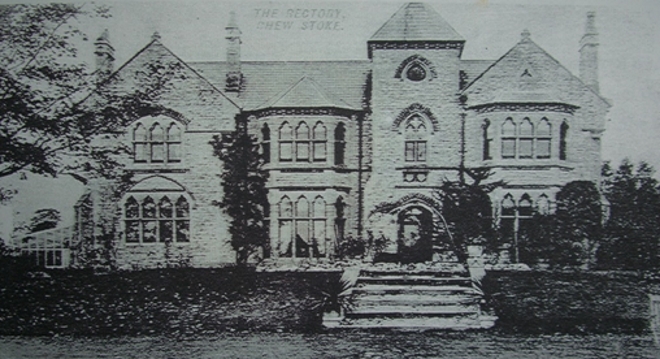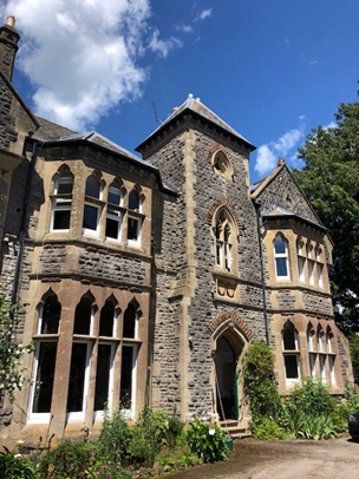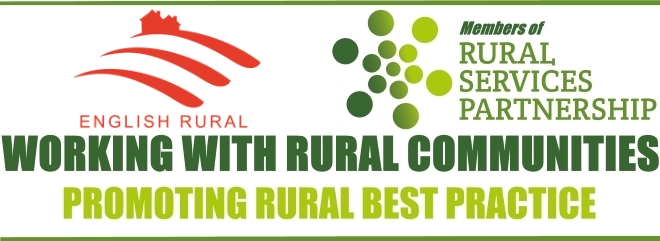T: 01822 851370 E: admin@sparse.gov.uk
RSN Voices Serious Concerns Over ‘Fairness’ Of Settlement
Read here...
“Some said we were mad. We said, ‘remember our purpose’.”
“Some said we were mad. We said, ‘remember our purpose’.”
These are the words spoken by our Chief Executive, Martin Collett, after English Rural took on a project in the village of Chew Stoke to rescue ‘The Old Rectory’, a Grade-Two listed Victorian house from dire straits back in 2013.
But first, a brief history...
The Old Rectory is located within the village of Chew Stoke, Somerset. Built by the Reverend John Ellershaw in the 1870s, The Reverend Lionel St. Clair Waldy was the last Rector to occupy the building from 1907 to 1945. A change in use of the building came when Mr. Douglas Wills bought the property, including Rectory field, and gifted it to Winford Hospital in the 1950s for their use for a convalescent home for children in memory of his late wife, Pamela. It then became known as the Pamela Wills Convalescent Home and accommodation was provided for 16 children. It was subsequently used as a Nurses Home and eventually the Health Authority sold the house to The Lodge Co-operative Housing Association after it had been empty for some years.
 |
A fall from grace
The house had fallen into disrepair whilst it was left empty. It was then occupied by squatters who formed a housing co-operative in the late 1970’s and started the process of repairing, improving and adapting this old house as a home once more. Previously known as ‘The Pamela Wills Nursing Home’ it was renamed The Old Rectory. The Lodge Co-operative was a ‘permanent tenant-ownership co-operative’, part of a broader co-operative movement that utilised grants available to housing associations to develop homes that could be made available at an affordable rent.
A quote from one of the original squatters:
“I first came to Bristol in the summer of 1974 and my eye was immediately drawn to a shop in a central area, which was the HQ of The Joint Housing Action Group - a loose affiliation of political groups and housing activists. The JHAG acted partly as a pressure group and partly as a squatters' association - it organised protests and demos and helped homeless people move into empty properties. As luck would have it, one of their associates worked for Avon County Council, and every time he came across information regarding a publicly-owned property which had been empty for more than two years, he passed on the details to the JHAG, who would then investigate and if it looked suitable, would help a group of people in need to squat it. One Sunday, a group of people arrived in Chew Stoke armed with cooking facilities - stoves, pots and pans, and let themselves gently into The Pamela Wills Nursing Home. After settling in, one of them contacted the local police who visited, read the electric meter, told them they would have to pay the rates, and left again. This didn't go down very well with the older villagers, however the younger ones thought it was great! For the first year or so, there was a lot of coming and going, but the people who wanted and needed to stay eventually formed themselves into a co-operative housing association, and the rest is history…”
Into the 21st century and the difficulties of running a co-operative gradually became harder and more apparent and the situation at the Old Rectory worsened. Responsibility and workload continued to fall to only a very few members. The co-operative became unable to reach agreement over certain issues, communication between residents started to break down and disputes emerged. The lack of formal written tenancy agreements and agreed policies made resolving disputes difficult. The grade two listed building also needed major repairs to be carried out, which finances did not stretch to. The future looked bleak.
A new lease of life
It was clear that the approach to tenancy and neighbourhood management lacked any formality or agreed process, the result being insufficient control mechanisms to tackle even some basic issues. There was also little focus on corporate issues, such as achieving strategic objectives and financial management and there was no evidence of any risk management activity being undertaken.
English Rural received a unique insight into The Lodge when it was commissioned in 2013 to undertake a peer review which identified several areas of organisational and administrative weaknesses. One of the recommendations of the review was that The Lodge Co-operative Shareholders should review how best to resolve these and continue to meet objectives in the future.
Residents were given three options: a) Continue as they are, b) Continue with external support, c) Join with another organisation able to assist with provision of services, regulatory compliance and ensure financial security. It was clear there would only be one satisfactory outcome. It then took two years for this decision to be accepted by all the members, some of whom initially opposed the transfer proposal of The Lodge Co-operative to English Rural, seeing it as a loss of independence.
English Rural already had eight units in Chew Stoke as well as 18 in the neighbouring village of Winford. It also held the necessary skills and other resources to take on such a complex project.
The transfer would establish a secure long-term future for residents and unlock substantial investment available from Homes England and Bath and North East Somerset Council to upgrade and improve the existing homes. Following a thorough due-diligence process, English Rural’s Board were asked to consider the proposal and in March 2017 the Transfer of Engagements (TOE) from The Lodge Co-operative to English Rural was completed.
According to one member of the co-operative, “I’ll always be grateful that English Rural rescued us from such a very difficult situation and that they are helping to transform the Old Rectory into a happy home for us all once more.”
 |
Now and the future
The residents now benefit from improvements to tenancy and neighbourhood management, including formal tenancy agreements and complaints, arrears and anti-social behaviour policies. Crucially, the property also receives much needed care and attention, including full surveys, a planned approach to future maintenance, full compliance with Health and Safety requirements and long-term financial planning.
The local authority, Bath and North East Somerset Council (BANES), were approached for additional funding to assist with catch-up repairs. English Rural were pleased to be able to report that BANES formally approved a grant of £150,000 for this purpose, without this the transfer would have not been considered viable given the level of investment needed in the building.
As part of the support offered here, English Rural received funding from Homes England to upgrade and adapt a ground floor unit to make it suitable for use by a resident with severe mobility issues. In total the funding bid to Homes England was £65,000.
In March 2019, the resident with mobility issues was relocated to a completely refurbished single-level ground-floor flat. Much of the design of the flat has been set around giving the resident improved access and an enhanced living environment that enables her partner to continue working from home and provide consistent support. Two extra bedrooms also helps provide respite care for another family member.
Other flats at The Old Rectory will also be refurbished and in some cases remodelled.
Our purpose
Back in 2013 when our then Operations Director and now Chief Executive, Martin Collett, was inspired to encourage English Rural to take on the project it was met with challenges and objections. Who on Earth would take on such an arduous project? We did. Why? Because at the heart of what English Rural stands for and what underpins what we do is community. Communities need people and people need homes. Giving people a place to call home that is affordable, safe and secure provides the stability they need to prosper in their local community. Social housing is where someone’s story begins, not ends. The story of The Old Rectory is no exception.




